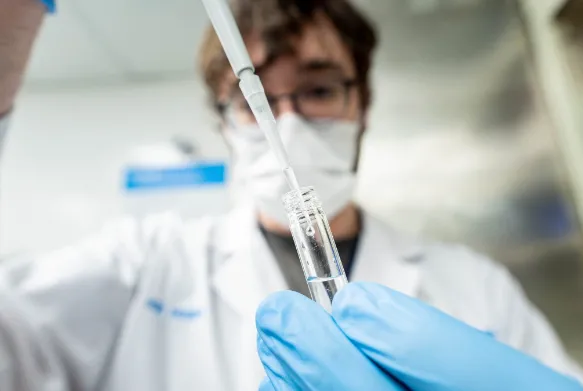
Clinical laboratories stand as unsung heroes, playing a pivotal role in disease diagnosis, monitoring, and treatment. These laboratories are the backbone of the medical field, providing crucial insights that guide healthcare professionals in making informed decisions about patient care.
Understanding the Core Functions of Clinical Laboratories
Clinical laboratories are specialized facilities equipped with advanced technologies and skilled professionals dedicated to analyzing various biological samples. These samples can include blood, urine, tissues, and other bodily fluids which can be bought at Procure-net.com. The primary functions of clinical laboratories can be broadly categorized into three key areas:
1. Diagnosis:
One of the fundamental roles of clinical laboratories is to aid in the diagnosis of diseases. Through a myriad of tests, laboratory professionals can identify the presence of pathogens, abnormal cells, or biomarkers indicative of specific conditions. Whether it’s detecting infectious diseases, cancer, or metabolic disorders, accurate and timely diagnoses are crucial for initiating effective treatment strategies.
2. Monitoring:
Clinical laboratories also play a vital role in monitoring the progression of diseases and the effectiveness of treatments. For chronic conditions such as diabetes, laboratory tests help healthcare providers track glucose levels over time, enabling them to adjust medications and lifestyle recommendations accordingly. Regular monitoring is essential for managing various health conditions and preventing complications.
3. Treatment Guidance:
In the era of personalized medicine, clinical laboratories contribute significantly to tailoring treatments based on individual patient characteristics. Genetic testing, for instance, allows for the identification of specific genetic markers that may influence a patient’s response to certain medications. This information guides healthcare providers in prescribing the most effective and least risky treatment options.
Technological Advancements Shaping the Future of Clinical Laboratories
The landscape of clinical laboratories has witnessed remarkable advancements driven by cutting-edge technologies. These innovations not only enhance the accuracy and efficiency of diagnostic processes but also open new possibilities for understanding and treating diseases. Some notable technological advancements include:
1. Next-Generation Sequencing (NGS)
NGS has revolutionized genetic testing by enabling the rapid and cost-effective sequencing of entire genomes. This technology has far-reaching implications for identifying genetic mutations associated with various diseases, paving the way for precision medicine and targeted therapies.
2. Liquid Biopsy:
Traditional biopsies involve invasive procedures to obtain tissue samples for analysis. Liquid biopsy, on the other hand, involves analyzing circulating tumor cells, DNA, or RNA in the blood. This non-invasive approach is particularly valuable in cancer diagnosis and monitoring treatment response.
3. Automation and Robotics:
Automation has streamlined laboratory workflows, reducing the risk of human error and increasing the throughput of diagnostic tests. Robotic systems are increasingly used for sample preparation, handling, and analysis, allowing laboratories to process a large number of samples efficiently.
4. Artificial Intelligence (AI):
AI is making significant inroads into clinical laboratories, particularly in image analysis and pattern recognition. Machine learning algorithms can analyze medical images, such as pathology slides and radiographs, with a level of accuracy that complements and sometimes surpasses human capabilities.
Challenges and Opportunities in Clinical Laboratories
While technological advancements bring unprecedented opportunities, clinical laboratories also face challenges that need to be addressed to ensure their continued effectiveness. Some of these challenges include:
1. Data Security and Privacy:
The increasing reliance on digital platforms and interconnected systems raises concerns about the security and privacy of patient data. Clinical laboratories must implement robust measures to safeguard sensitive information and comply with data protection regulations.
2. Workforce Shortages:
The demand for skilled laboratory professionals is on the rise, but there is a shortage of qualified personnel. Addressing this workforce gap is crucial to maintaining the quality and efficiency of laboratory operations.
3. Integration of Complex Technologies:
As laboratories adopt advanced technologies, integrating these complex systems into existing workflows can be challenging. Seamless integration is essential to maximize the benefits of technological innovations without disrupting routine operations.
4. Regulatory Compliance:
Clinical laboratories are subject to stringent regulations to ensure the accuracy and reliability of test results. Staying compliant with evolving regulatory requirements is an ongoing challenge that requires continuous monitoring and adaptation.
The Future Landscape of Clinical Laboratories: A Collaborative Approach
As we look toward the future, the collaboration between clinical laboratories, healthcare providers, and technology developers will be key to addressing challenges and unlocking new possibilities. Here are some ways in which this collaboration can shape the future landscape of clinical laboratories:
1. Interdisciplinary Research and Development:
Collaborative efforts between laboratory scientists, clinicians, and technology experts can drive innovative research and development. This interdisciplinary approach can lead to the discovery of novel biomarkers, diagnostic methods, and therapeutic targets.
2. Education and Training Programs:
Investing in education and training programs is essential to address workforce shortages and ensure the next generation of laboratory professionals is well-equipped with the skills to navigate evolving technologies. Continuous learning opportunities can also help current professionals stay abreast of advancements in the field.
3. Data Sharing and Standardization:
Establishing standardized protocols for data sharing and interoperability is crucial for the seamless exchange of information between clinical laboratories and healthcare systems. This can improve the efficiency of diagnostic processes and contribute to more comprehensive patient care.
4. Patient Engagement:
In the era of patient-centred care, involving patients in the diagnostic and treatment process is increasingly important. Clinical laboratories can play a role in educating patients about the significance of laboratory tests and their impact on healthcare decisions.
Conclusion
clinical laboratories are indispensable components of the healthcare ecosystem, providing invaluable insights that guide medical decisions and improve patient outcomes. The ongoing advancements in technology present both challenges and opportunities for laboratories to evolve and meet the changing needs of the healthcare landscape. By fostering collaboration, investing in education, and embracing innovation, clinical laboratories can continue to be at the forefront of transforming healthcare delivery.